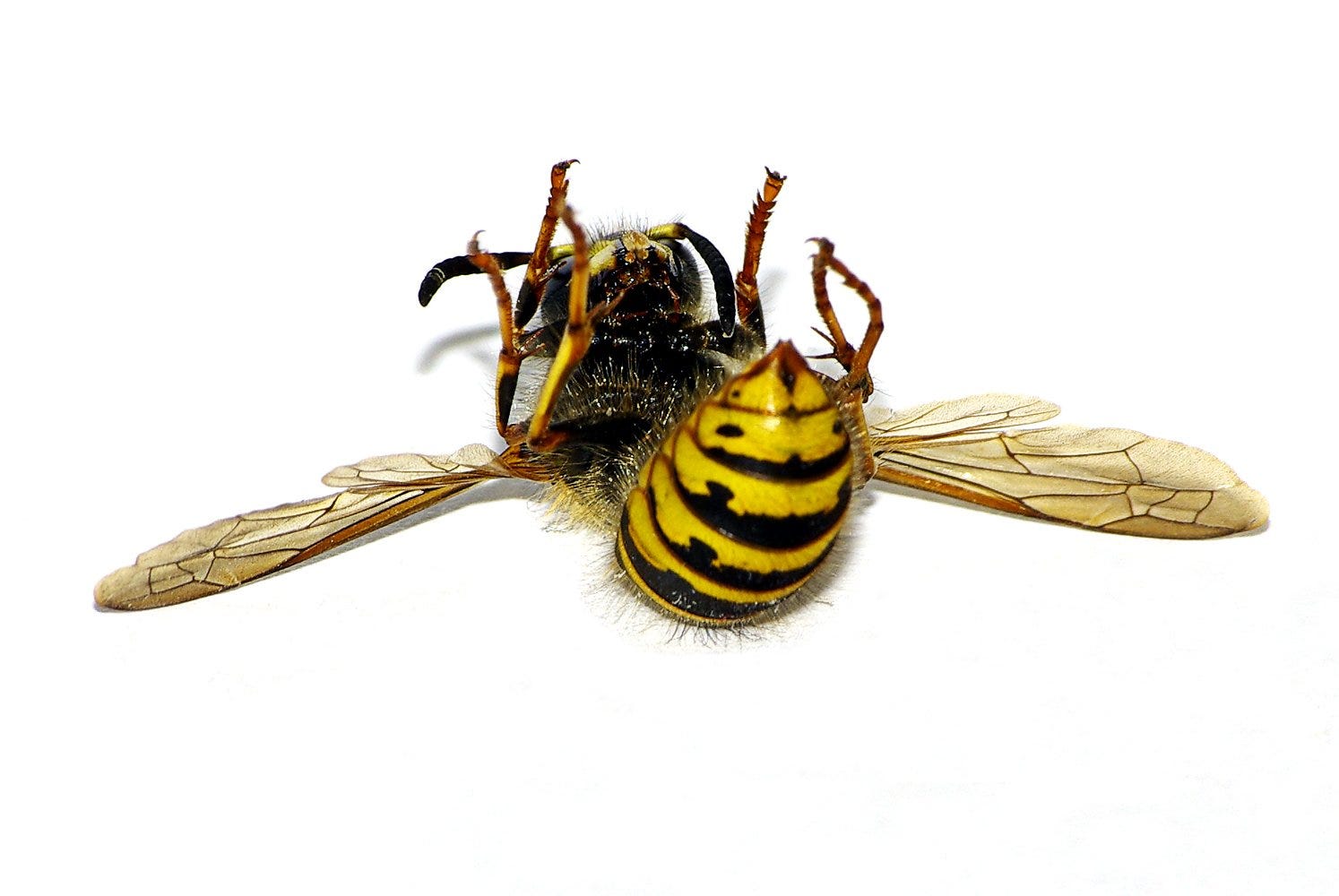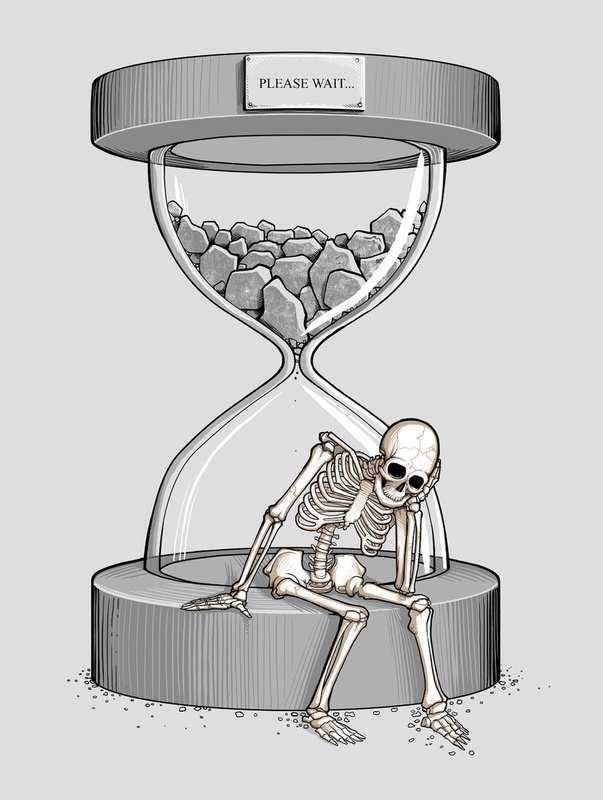
“Where there is no vision, the people perish.” — Proverbs 29:1
In late summer, the bane of many barbecues, picnics, and amusement parks is the yellow jacket wasp. To understand why a wasp behaves this way, we must first understand how a wasp colony operates. In spring, the queen wasp wakes from hibernation and lays eggs in a nest to start a new colony. Most wasps are female and cannot reproduce. Their purpose is to catch food for their baby sisters. Wasps catch and chew up insects and feed larvae to produce more adult sisters. Adult wasps cannot eat the insects themselves because of their tiny waists, so how do they feed? To reward their older sisters for bringing them food, the larvae produce a sugary spit. This sugary spit nourishes the adult wasps and keeps them coming back for more. This cycle continues throughout the summer until the queen produces new queens and male wasps. This signals a change in direction for the colony, and the old queen stops laying eggs. Her new focus is hibernation and the continuity of the species by producing new heirs.
The worker wasp finds herself with nothing to eat, as there are no more larvae to produce sugary sustenance. The late summer wasps must seek sugar elsewhere; a great source of sugar is rotting fruit. When they consume fermented fruit, workers become disoriented and intoxicated and go on a sugar binge, seeking a sugar fix wherever they can. Therefore picnics, sugary drinks or sticky buns are so attractive to late-summer wasps. When we react aggressively or out of fear, wasps sting us.

The fate of wasps is very relevant to humans. A key element in the wasp life-cycle is how the queen maintains social cohesion. When the queen stops producing the hormone that maintains colony cohesion, the colony disintegrates. When there is no uniting vision, a once thriving population breaks down quickly. In this respect, the queen reflects one of the key roles of a CEO.
Worldwide, only 13% of employees are engaged, which means 87% are not enthusiastic about their work. Companies with engaged employees outperform their peers by 202%. Productivity improves by 20–25% in organisations with connected employees. Reasons for disengaged employees include poor management, not being adequately challenged, but a prevalent problem is often a lack of vision. A lack of vision translates as a lack of purpose for the worker.
Like wasps, us humans we need connection; we need a vision; we need a unifying purpose. Yes, many of us are busy in our jobs or raising families and distract ourselves with sports, social media and a variety of substances (including sugar). Unlike the worker wasp, who will die once her work is complete, we humans have a choice after our work is complete. We can cultivate our own purpose rather than relying on our work to provide a purpose for us. We can even do these two things at the same time.
Retirement

“There is no joy to be had from retirement, except in some kind of productive work. Otherwise, you degenerate into talking to everybody about your pains and pills. The point is not to retire from work or you will shrivel up into a nuisance to all mankind.” — Herbert Hoover
Studies tell us that retirement is not the key to a blissful life. Retirement does not bring joy if we tie up all our life and identity in work itself. However, retirement can bring joy if we find a purpose linked to our values.
Many parents experience a loss of identity when their children leave home. Many sports people experience a loss of identity when we retire or when injury forces us to retire. Many of us accelerate our demise when we retire. While it is hard to resolve that a lack of purpose is partly responsible, we all know far too many retirees who lack a reason for being, a joie de vivre.
To avoid the fate of the worker wasp, the fate of the retiring worker and the fate of the person who Wanders Aimlessly Sans Purpose, we must cultivate a purpose for our lives. Often the business we work for does not provide us a purpose; this is our responsibility; we need to first cultivate our own purpose. This step is one we often overlook. When we form our own beliefs, values, and purpose, we can find a business that aligns with our values. Without this crucial step, we will always be out of sync with the organisations we work for. We will always wander and seek distractions to numb the need.
Episode 175 of the Innovation show is on the very topic of developing our values and finding a business that can reflect those values, it is based on the bestselling book: “The Compass and the Radar: The Art of Building a Rewarding Career While Remaining True to Yourself”. Our guest is an executive coach, a bestselling author and keynote speaker. Paolo Gallo is one of the most-seasoned chief human resources officers in the world.
Paolo offers a unique pathway toward identifying the right career, finding the ideal job and developing a moral compass, the solid value system that will then anchor us in our professional lives.
His book helps us to identify both our own compass, which relates to integrity, passion and internal value systems and radar, which helps us to understand organisational complexity and ‘read’ workplace dynamics and situations.
The “Compass of Success” is founded on a series of searching questions that will enable anyone to find their compass and radar to achieve personal success:
– How can I find out what my real strengths and talents are?
– Do I love what I do?
– How can I find a job with a company that truly reflects my values?
– What are the prices I am willing to pay for a meaningful and rewarding career?
– How should I define a successful career?
Amid a volatile and uncertain world, one in which technology, AI and digital resources are transforming the work environment, The Compass and the Radar allows us to pause, reflect, and consider who we are, what we stand for, and how to remain free.
Have a listen:
SoundCloud https://lnkd.in/gBbTTuF
Spotify http://spoti.fi/2rXnAF4
iTunes https://apple.co/2gFvFbO
TuneIn http://bit.ly/2rRwDad
iHeartMedia http://bit.ly/2E4fhfl
More about Paolo here: